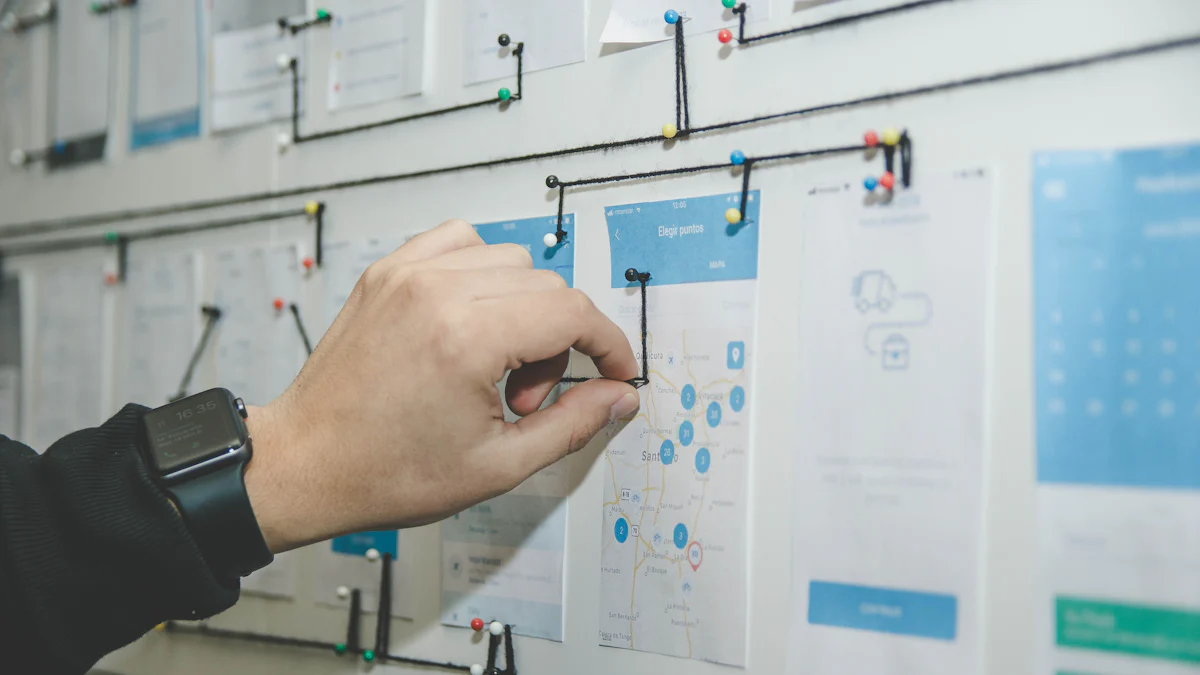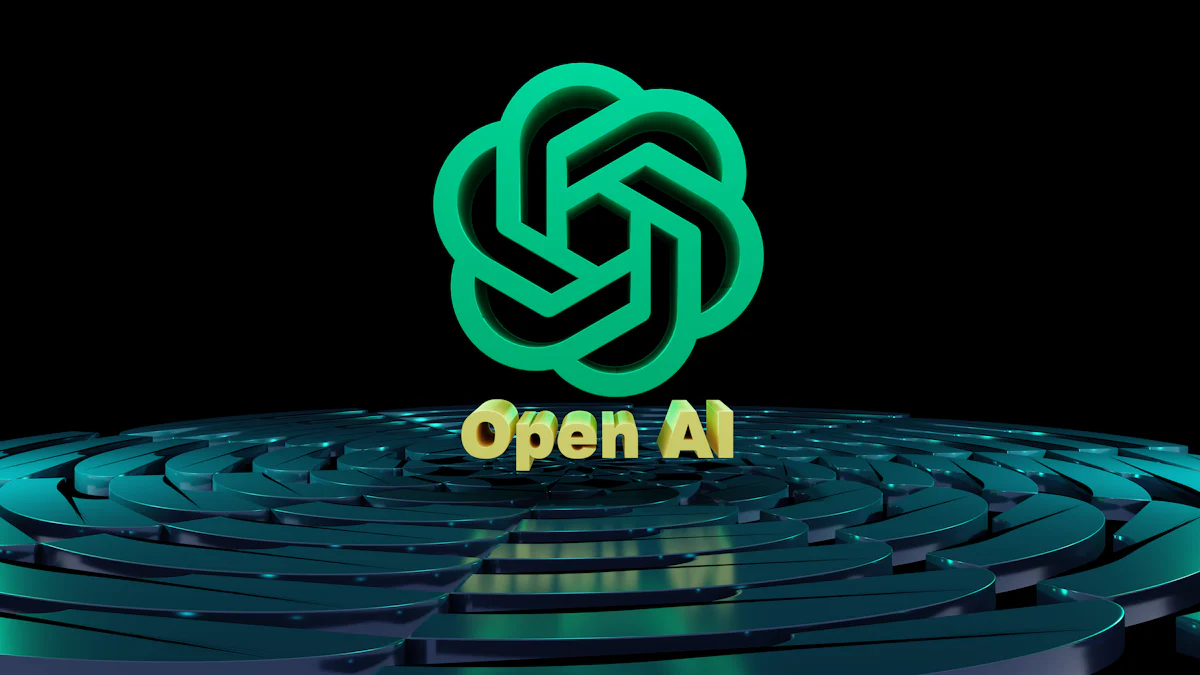
In traditional project management, challenges like time constraints and resource allocation often hinder optimal project outcomes. However, with the rise of AI-powered project management tools, a new era of efficiency has emerged. These tools leverage artificial intelligence to streamline tasks, enhance decision-making, and boost overall productivity. This blog delves into the transformative impact of AI in project management, exploring its benefits and implications for modern project practices.
Understanding AI-Powered Project Management Tools
What Are AI-Powered Project Management Tools?
Artificial intelligence (AI) has revolutionized project management by introducing AI-powered tools that streamline tasks and enhance productivity. These tools leverage AI algorithms, machine learning, and data analytics to optimize project planning, execution, and monitoring.
Definition and key features
AI-powered project management tools integrate advanced technologies to automate repetitive tasks, provide valuable insights, and facilitate intelligent decision-making. They offer features like predictive analytics, smart scheduling algorithms, virtual assistants, sentiment analysis tools, and automated reporting systems.
Examples of popular AI-powered tools
- Trello: Trello integrates AI capabilities to enhance productivity and streamline task management. Its intuitive Kanban-style boards allow users to visualize project progress seamlessly.
- Forecast: Forecast combines AI project management with resource and financial management in one platform. It offers AI-assisted task management, capacity planning, approvals, risk management, status tracking, and timesheets.
How AI Enhances Project Management
AI not only automates routine tasks but also enhances decision-making processes within project management. By leveraging predictive analytics and advanced algorithms:
Automation of repetitive tasks
AI-powered tools automate mundane activities such as scheduling meetings or updating progress reports. This automation frees up time for project managers to focus on strategic planning.
Predictive analytics for better decision-making
Through predictive analytics, AI-powered tools can forecast potential risks or delays in a project timeline. This proactive approach enables managers to make informed decisions promptly.
Enhanced collaboration and communication
By analyzing data patterns and team interactions, AI-powered tools improve collaboration among team members. They suggest optimal workflows based on historical data insights.
Key Benefits of AI-Powered Project Management Tools
The adoption of AI-powered project management tools brings numerous benefits that significantly impact efficiency and outcomes:
Time-saving through automation
With the automation of repetitive tasks like data entry or status updates, project teams save valuable time that can be redirected towards more critical aspects of the project.
Improved accuracy and reduced human error
By leveraging AI algorithms for data analysis and decision-making processes, the margin for error decreases significantly. This leads to more precise outcomes in project execution.
Enhanced resource allocation and management
AI-powered tools assist in optimizing resource allocation by providing real-time insights into workload distribution. This ensures resources are utilized efficiently across various project tasks.
How to Implement AI-Powered Project Management Tools
Assessing Your Project Management Needs
- Identifying Pain Points and Inefficiencies
- Evaluate current project management processes to pinpoint areas of inefficiency and bottlenecks.
- Analyze data on project timelines, resource allocation, and team collaboration to identify pain points accurately.
- Setting Clear Goals and Objectives
- Define specific and measurable goals for implementing AI-powered tools in your project management workflow.
- Establish clear objectives that align with the overall project strategy to ensure successful integration.
Choosing the Right AI-Powered Tool
- Evaluating Features and Functionalities
- Compare different AI-powered project management tools based on their features such as automation capabilities, predictive analytics, and collaboration enhancements.
- Assess how each tool aligns with your project requirements and can address the identified pain points effectively.
- Considering Integration with Existing Systems
- Evaluate the compatibility of AI-powered tools with your current project management systems and software.
- Ensure seamless integration between new AI tools and existing platforms to maximize efficiency without disrupting ongoing projects.
Training and Onboarding Your Team
- Providing Comprehensive Training Sessions
- Conduct training sessions to familiarize your team with the functionalities and benefits of the selected AI-powered tool.
- Offer hands-on practice opportunities to ensure team members are proficient in using the tool effectively.
- Encouraging Adoption and Addressing Resistance
- Communicate the value proposition of AI-powered tools to team members, emphasizing how it can streamline processes and improve outcomes.
- Address any concerns or resistance towards adopting new technology by highlighting success stories from other projects or industries.
Monitoring and Optimizing Tool Usage
Regularly reviewing tool performance
- Evaluate the efficiency of AI-powered project management tools by regularly assessing their performance metrics.
- Monitor key indicators such as task completion rates, error reduction percentages, and time-saving measures to gauge the impact of these tools on project workflows.
- Analyze data trends to identify areas where the AI algorithms excel and pinpoint potential areas for improvement or optimization.
Making adjustments based on feedback
- Implement changes based on feedback gathered from project managers and team members regarding the usability and effectiveness of the AI-powered tools.
- Adapt the tool configurations to align with evolving project requirements and address any emerging challenges or bottlenecks effectively.
- Continuously refine the tool usage strategies by incorporating user suggestions and best practices shared by industry experts to maximize the benefits of AI integration in project management.
Real-World Applications and Case Studies

Success Stories from Various Industries
Case study 1: IT industry
- Automation Triumph: A software development project manager utilized AI-powered tools to automate routine tasks, allowing the team to focus on creative problem-solving and innovation.
- This approach drove efficiency within the project management process, enhancing collaboration among team members.
Case study 2: Construction industry
- Predictive Analytics Win: In the construction sector, a project manager harnessed AI’s predictive analytics capabilities to foresee and mitigate potential bottlenecks.
- By leveraging AI tools, the project was completed on time and within budget, showcasing the power of predictive analytics in ensuring successful project outcomes.
Lessons Learned from Implementing AI-Powered Tools
Common challenges and how to overcome them
- Embracing new technologies like AI-powered tools can present challenges such as resistance to change or initial learning curves.
- Overcoming these hurdles involves providing adequate training, fostering a culture of innovation, and showcasing the tangible benefits of AI integration in project management.
Best practices for successful implementation
- Strategic Planning: Before implementing AI tools, define clear objectives aligned with project goals to ensure seamless integration.
- Collaborative Approach: Encourage open communication among team members to facilitate the adoption of AI-powered tools and address any concerns effectively.
- Continuous Evaluation: Regularly assess the performance of AI tools, gather feedback from users, and make necessary adjustments to optimize their usage for improved project outcomes.
Future Trends in AI-Powered Project Management

Emerging Technologies and Innovations
AI advancements in project management
- AI advancements continue to reshape the landscape of project management, offering innovative solutions to streamline workflows and optimize resource utilization.
- Leveraging cutting-edge algorithms and data analytics, AI-powered tools enhance decision-making processes and drive efficiency across projects.
- The integration of AI in project management enables real-time monitoring, predictive insights, and adaptive strategies to meet evolving project requirements effectively.
Integration with other emerging technologies (e.g., IoT, blockchain)
- The synergy between AI-powered project management tools and emerging technologies like IoT and blockchain opens new avenues for enhanced collaboration and data security.
- By combining AI capabilities with IoT sensors, project managers can access real-time data on project progress, resource usage, and environmental factors for informed decision-making.
- Blockchain technology ensures transparent transactions and secure data sharing, complementing the predictive analytics of AI tools to mitigate risks proactively.
Potential Challenges and Considerations
Ethical and privacy concerns
- As AI-powered tools evolve in project management, ethical considerations around data privacy and algorithm bias become paramount.
- Ensuring transparency in AI algorithms’ decision-making processes is crucial to maintaining ethical standards and safeguarding sensitive project information.
- Project managers must address privacy concerns by implementing robust data protection measures and fostering a culture of ethical AI usage within their teams.
Ensuring continuous improvement and adaptation
- To stay ahead in the dynamic landscape of project management, organizations need to prioritize continuous improvement through AI-driven insights.
- Regularly evaluating tool performance, gathering user feedback, and adapting strategies based on evolving project needs are essential for sustained success.
- Embracing a culture of adaptability allows teams to leverage AI innovations effectively, driving continuous improvement in project outcomes.
- Embrace the Evolution: Embracing AI in project management can significantly enhance efficiency, effectiveness, and decision-making skills.
- Future Optimization: AI optimizes resource allocation, analyzes workloads, predicts costs, and evenly distributes tasks among team members for improved outcomes.
- Transformative Potential: Real-world case studies showcase AI’s transformative impact on project management by optimizing resources, enhancing communication, managing risks effectively, and improving overall efficiency.
- Driving Innovation: AI’s rapid evolution reshapes project management by enhancing productivity, optimizing processes, and offering innovative tools for better resource allocation and risk management.
- Real Efficiency Boost: Project managers are leveraging AI tools to drive efficiency, reduce risks, enhance collaboration through automation and predictive analytics tools for better project outcomes.
 Press Coffee
Press Coffee